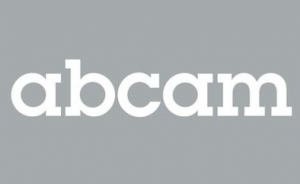Introducing… Abcam! An Interview with with Will Howat
Introducing our very first sponsor... Abcam! Dr Will Howat, Abcam’s Head of Imaging and Immunohistochemistry (IHC), tells us about Abcam’s IHC processes.

Abcam, a world-renowned life sciences company, is generously sponsoring Race for Science. Their products are used in labs all over the world to reach new understandings of cancer. Because it’s so important to get reliable and consistent results in science, chemicals used in labs have to be very carefully tested before they are used. Dr Will Howat, Abcam’s Head of Imaging and Immunohistochemistry (IHC), tells us about Abcam’s IHC processes.
IHC is a technique used to identify different proteins within cells and tissues. By using antibodies to attach to certain tissue, special dyes and microscopy, it’s possible for researchers and doctors to see differences between cells which can help diagnose cancer, or identify different types of cancer.
We want researchers to focus on what matters most to them – the research. That’s why we provide scientists with products that they can rely on; products that work as expected and don’t lead to wasted time and funding. This is why we are investing in antibody production methods to ensure batch-to-batch reproducibility and validation methods to give our customers high-quality, specific antibodies. To find out more about what Abcam is doing to improve antibody validation, we had a chat with Will Howat our head of imaging and immunohistochemistry.
Q: Tell us about your scientific career before joining Abcam?
A: I have had a varied academic and industrial career, starting with a PhD in pathology from the University of Southampton in a well-renowned centre for histopathology, before moving to do more cell biology focused research in the University of Southampton Asthma research dept. After working at the Wellcome Trust Sanger Institute on a program attempting to create a murine tissue atlas, I set up and ran the Histopathology/ISH Core Facility at the Cancer Research UK Cambridge Institute. My jump into industry involved joining AstraZeneca as Team Leader for the Molecular Pathology Group in the Translational Science Dept of the Oncology iMED.
Q: What is your role at Abcam?
A: I am the Head of Imaging and Immunohistochemistry. I look after the flow cytometry, immunocytochemistry and immunohistochemistry within Abcam, currently in 3 sites across the globe; Cambridge (UK), Hangzhou (China), and Burlingame (USA). My main focus is ensuring this is done with an eye on producing high quality validated antibodies for the Abcam catalogue.
Q: What technologies or methods does Abcam use for product validation?
A: Our scientists extensively examine the available literature to determine the best cell lines/tissues with expression or cell culture treatments to induce expression of our target protein and then use these cells/tissues to determine product validation. All of our products are reviewed with a keen eye to determine the localization of the target protein into the expected cellular, and subcellular location and products are discarded if felt to be non-specific.
Q: How do you ensure that Abcam’s products give researchers publication-quality images that they can trust?
A: We use a variety of methods within the validation of our new products. This includes staining multi-normal human tissue microarrays (TMAs), multi-tumour human TMAs and rat/mouse TMAs during the antibody development and QC phases of the development of our RabMAb® products for immunohistochemistry. Similarly, our products are not only screened in ELISA but also in Western Blot, flow cytometry, and immunocytochemistry to determine which applications they are most suitable (or not) for and this data is included on the datasheet.
Q: How can researchers access product testing data?
A: Please contact the Science Support team who can reach out to the validation teams to provide any additional data that is present.
Q: Looking to the future, are you taking any steps to further improve product testing?
A: Absolutely, but that would be telling. Seriously, we are looking to extend our KO validation range of antibodies into immunohistochemistry as well as the current methods of Western Blot, immunocytochemistry, and flow cytometry to enable our researchers to be able to choose antibodies that have been KO validated in IHC. We hope that this will not only increase our researcher’s confidence in our products but also shorten their own validation process within their labs.
Q: Are there any other developments in our imaging and IHC ranges that researchers should look out for?
A: We’ll be enhancing our images on the website in the future and aim to include more dual staining for our IHC product range, where applicable.

For more information on Abcam’s products and protocols, visit their website.

